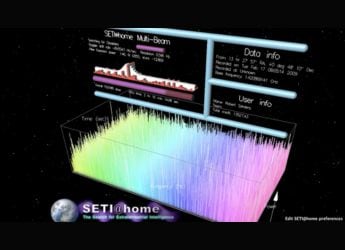- Home
- Telecom
- Telecom News
- AT&T and US Government Face Off in Court Monday. Here's What You Need to Know.
AT&T and US Government Face Off in Court Monday. Here's What You Need to Know.
White House intrigue. Silicon Valley-backed disruption. The future of the information economy. And the power of government to hold large and dominant companies accountable.
All of these have become defining factors in a historic lawsuit involving AT&T and the Justice Department, and it reaches a crescendo Monday as the two sides head to trial. The case could effectively put a freeze on the recent tide of mega-mergers nationwide - or weaken regulators for years. It could even lead to price changes in your cable bills.
Here's everything you need to know as the AT&T-Time Warner deal goes to court.
What is the AT&T-Time Warner merger?
The $85 billion acquisition would marry one of the nation's biggest wireless and telecommunications companies with a giant in media and entertainment, creating a company that spans different lines of business. This is called a vertical merger.
Time Warner is one of the world's largest media companies and controls well-known brands such as HBO, CNN, TNT and TBS. Time Warner also owns everything under the Warner Bros. umbrella, including DC Comics, the rights to the Harry Potter films, and New Line Cinema, the company that gave us the Lord of the Rings movie franchise. From Full Frontal with Samantha Bee to the hit video game The Witcher 3: Wild Hunt, Time Warner produces a mind-boggling array of content that AT&T hopes to market to rival cable companies and consumers.
AT&T also wants to collect usage data about its viewers so that it can build a digital advertising empire to rival tech titans such as Google and Facebook, which dominate the online ad industry.
Why is this case such a big deal?
It's been decades since the government last went to court to block a vertical merger. Because of that, many analysts had predicted the AT&T deal would simply sail through the regulatory process. Instead, the government's stiff opposition took antitrust experts by surprise.
Business and policy analysts say this case will be something of a bellwether at a time when mergers and acquisitions are rapidly on the rise. A win for the Justice Department could signal to industry that the government is taking a harsher view of vertical mergers, deterring future deals and undoing decades of generally permissive policy. But if AT&T wins, analysts say, it would be a setback for regulators and their ability to block vertical mergers they view as anti-competitive.
That would have practical ramifications. Already, more than $409 billion (roughly Rs. 26.6 lakh crores) worth of deals have been announced in 2018, a 67 percent jump from the same time last year and the fastest start ever for mergers and acquisitions in a single year, according to Dealogic, a financial advisory firm. Between 2010 and 2016, the number of mergers for which companies sought federal approval leaped by 58 percent, according to a study of regulatory filings by Michael Kades of the Washington Center for Equitable Growth, a think tank.
What will the trial be like?
The Justice Department is expected to argue that a combined AT&T-Time Warner would lead to higher prices for consumers and other cable companies - and that that could harm competition. AT&T disputes this allegation and has tried to draw the White House into the fray by insinuating that President Donald Trump could have imposed undue influence on the Justice Department's antitrust review of the deal, which is supposed to be independent.
How could the deal lead to higher prices?
According to the government, once AT&T owns Time Warner, it could force other cable companies to pay extra for the rights to carry shows such as Game of Thrones or channels such as CNN. At that point, those distributors would face a tough choice: Pay up, or risk having AT&T yank that content and leave consumers with a blackout.
The Justice Department's economic expert argues that this could lead to $436 million in extra fees being passed to cable subscribers every year. AT&T's economist says that cable prices would actually be likely to decrease because of the economic efficiencies it could create. But even if the government claims were true, the company says, it would work out to no more than an extra 45 cents per month on customers' bills.
Why the obsession with prices?
Antitrust regulators are charged with protecting competition and consumer welfare. One of the most straightforward ways they've done this is by looking at prices; if they go up as a result of a merger, that's potentially bad for consumers.
Where does Trump fit into all this?
Trump hasn't been a fan of CNN, regularly describing the news network owned by Time Warner as "fake news." When on the campaign trail, Trump said, "As an example of the power structure I'm fighting, AT&T is buying Time Warner and thus CNN, a deal we will not approve in my administration because it's too much concentration of power in the hands of too few."
So when Trump won the election, it led the deal's supporters and critics alike to wonder whether he might interfere in the Justice Department's review of an AT&T-Time Warner merger.
How did AT&T respond?
From the start, AT&T appeared to embark on something of a charm offensive. It contributed $2 million in cash and other aid to Trump's inauguration. And its chief executive, Randall Stephenson, made a house call to Trump Tower in January, huddling privately with the president-elect.
Still, Trump never let up in his criticism of the merger. "I do feel you should have as many news outlets as you can - especially since so many are fake," he told reporters in November as the Justice Department prepared to block the deal. But he said he "didn't make that decision - it was made by a man who's a very respected person, a very, very respected person."
Who?
The Justice Department's top antitrust enforcer, Makan Delrahim, supported Trump during the campaign and served as a White House lawyer for several months before being appointed to his current position in August. Delrahim has submitted sworn testimony to the court affirming that the White House never gave him instructions on the deal.
AT&T wanted to go further, demanding detailed communications logs from the government. But a judge blocked that request, cutting short any exploration of the political issues surrounding the deal.
When will the ruling be made?
The trial is expected to last several weeks, with a ruling likely to come in April.
© The Washington Post 2018
Catch the latest from the Consumer Electronics Show on Gadgets 360, at our CES 2026 hub.
Related Stories
- Samsung Galaxy Unpacked 2025
- ChatGPT
- Redmi Note 14 Pro+
- iPhone 16
- Apple Vision Pro
- Oneplus 12
- OnePlus Nord CE 3 Lite 5G
- iPhone 13
- Xiaomi 14 Pro
- Oppo Find N3
- Tecno Spark Go (2023)
- Realme V30
- Best Phones Under 25000
- Samsung Galaxy S24 Series
- Cryptocurrency
- iQoo 12
- Samsung Galaxy S24 Ultra
- Giottus
- Samsung Galaxy Z Flip 5
- Apple 'Scary Fast'
- Housefull 5
- GoPro Hero 12 Black Review
- Invincible Season 2
- JioGlass
- HD Ready TV
- Laptop Under 50000
- Smartwatch Under 10000
- Latest Mobile Phones
- Compare Phones
- Tecno Spark Go 3
- iQOO Z11 Turbo
- OPPO A6c
- Samsung Galaxy A07 5G
- Vivo Y500i
- OnePlus Turbo 6V
- OnePlus Turbo 6
- Itel Zeno 20 Max
- Lenovo Yoga Slim 7x (2025)
- Lenovo Yoga Slim 7a
- Lenovo Idea Tab Plus
- Realme Pad 3
- Garmin Quatix 8 Pro
- NoiseFit Pro 6R
- Haier H5E Series
- Acerpure Nitro Z Series 100-inch QLED TV
- Asus ROG Ally
- Nintendo Switch Lite
- Haier 1.6 Ton 5 Star Inverter Split AC (HSU19G-MZAID5BN-INV)
- Haier 1.6 Ton 5 Star Inverter Split AC (HSU19G-MZAIM5BN-INV)
















